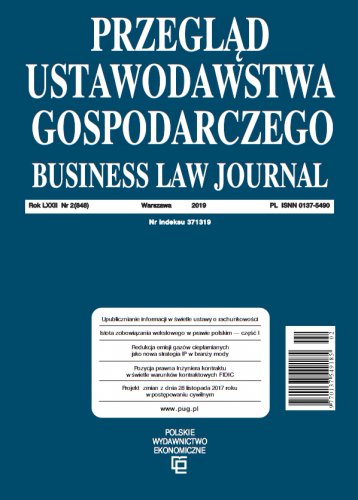The construction of the acquisition of the company's/ partnership's assets by a partner or shareholder is expressly provided for in two cases. First, such a possibility is governed by Article 66 of the Polish Code of Commercial Partnerships and Companies (CCPC) on the right to take over the assets of a general partnership by its partner if there is a reason for the dissolution in a partnership composed of two partners, attributable to one of them. This provision will apply mutatis mutandis to the professional partnership and the limited partnership (Articles 89 and 103 CCPC), and possibly to the limited joint-stock partnership (Article 126 § 1 pkt 1 CCPC). Second, such construction was introduced for companies by Article 300122 CCPC concerning the simple joint-stock company, which provides for the possibility of taking over the company's assets in the event of the occurrence of a reason for dissolution by a specific shareholder under a resolution of the general meeting, provided that the court of registry authorises such a takeover. The takeover of the company's/partnership's assets may or may not result in the continuation of the existing business by the shareholder or in the use of the acquired assets to develop other economic activities. In such a case, a kind of "transformation" of a commercial-law company or partnership into a sole trader may therefore occur. The aim of the article is to analyse the normatively determined constructs of the acquisition of the corporate assets by a partner in a general partnership and by a shareholder in a simple joint-stock company and to identify the similarities and differences between them, thus demonstrating the existence of two mechanisms enabling the "transformation" of a company/partnership into a sole trader.
Keywords: takeover of corporate assets; transformation; partner of a general partnership; shareholder in a simple joint-stock company

